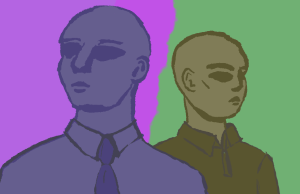ChatGPT paves the way for the future of AI
January 20, 2023
Since its release on Nov. 30, 2022, ChatGPT, while still in its beta version, has proven to be an advanced virtual assistant, demonstrating capabilities like quickly translating language and summarizing text. Its versatility outpaces that of other conversational artificial intelligence, such as Siri, Alexa, and Google Assistant, and its popularity has spread quickly. ChatGPT’s potential is endless; it can streamline the tasks of a large workforce by churning out informative emails, math proofs, and even identifying bugs in lines of code.
By assisting with basic jobs, the chatbot is able to help people avoid doing redundant tasks, allowing them to focus on more creative pursuits. As an experienced coder, senior and Coding Club President Racicth Anasuri believes ChatGPT can help people work more efficiently. He said, “I was concerned because as a coder, ChatGPT can write its own code. However, if coders have a question with code, they don’t have to wait for a senior developer to look at it, test it, and see what’s wrong. ChatGPT can just look at it and work through its previous training data to give a response quickly and solve such problems.”
What sets ChatGPT apart from other chatbots is its ability to produce incredibly human-like writing and condense complex concepts into easy-to-read text within seconds. Unlike a Google Search that will return many disconnected “hits,” ChatGPT presents information in a logical flow that is similar to how a human might convey information. In this way, ChatGPT has proven to be an effective online teacher. Its ability to complete tasks like writing essays is an effective time saver for organizations like businesses that need to process lots of information quickly. The program can continually adapt to new challenges as it learns from large amounts of data.
However, ChatGPT’s vast capabilities have created an ethical issue surrounding its various applications. The primary concern is that ChatGPT’s yields will eventually trump those made by actual humans, overpowering the need for human involvement in certain industries altogether. The truth is that while ChatGPT can mimic the artistic tendencies of real people, it is still susceptible to the scrutiny of other technologies, which are capable of identifying plagiarism. People are already making safeguards in response to ChatGPT; an app called GPTZero that can determine whether or not something was written by AI was published about a month after the beta version of ChatGPT was launched. To make it easier for text-checkers like GPTZero to identify plagiarism, OpenAI researcher Scott Aaronson and his team are working towards creating a watermark for ChatGPT-produced content. “Basically, whenever GPT generates some long text, we want there to be an otherwise unnoticeable secret signal in its choices of words, which you can use to prove later that, yes, this came from GPT,” he said in a blog post that summarized a lecture he gave about AI.
All in all, ChatGPT is not inherently built for misuse. To prevent ChatGPT from helping people with malicious intent, OpenAI has programmed ChatGPT to identify malicious prompts and refuse to answer them. The chatbot will not help its users if they ask for advice on topics related to harassment and violence. It’s important to note that if someone tells it to carry out an order with the intent of passing it off as their own original work, ChatGPT will do so. The duties it carries out are entirely based on that of its users. Yes, the current model of ChatGPT can be taken advantage of, but it’s still in its early stages of development and more precautions are going to be installed. With the right safeguards in place, ChatGPT can utilize its capability to do a lot of good in the future.
The chatbot, along with other AI systems released by OpenAI, signifies a new generation of language-based models, one that can react to humans’ commands in a more accurate way than ever before. Its technology leaves potential for a new generation of chatbots that can translate and transcribe information in a more coherent way. Conversation-oriented AI systems are already used daily by many—80% of people have interacted with a chatbot at some point in their lives—and it’s only natural their capabilities grow over time.
The incorporation of technology like ChatGPT into society is sure to welcome the creation of more AI-based jobs and an increased interest in tech among students. “The technology is only ever as good as the algorithm and I think there are limits to machine learning,” IT Specialist David Wolf-Hudson said. “I don’t think that especially in very highly specialized areas, computers will ever completely supplant humans…But I think it’s going to kind of take our jobs in a more specialized direction.”
While still in its beta model, ChatGPT has made history as one of the most advanced chatbots ever released to the general public. It is sure to take society by storm as well as usher in a new age of technology. By opening doors for the future of AI, ChatGPT allows us to get a glimpse of where technology can take us.


